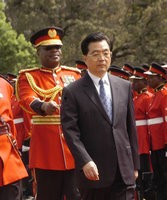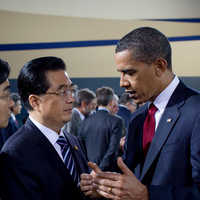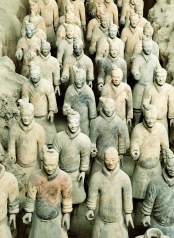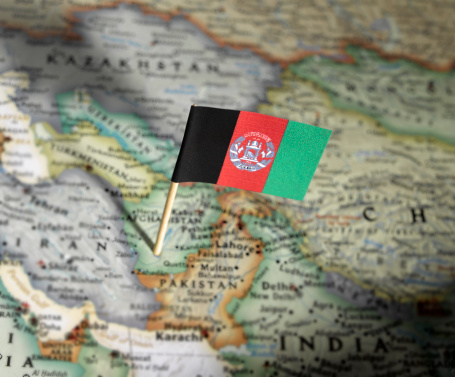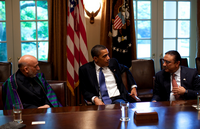 Jagdish Bhagwati is a Columbia econ prof whose writings on globalization (particularly his book, In Defense of Globalization) I consider on par with Martin Wolf.
Jagdish Bhagwati is a Columbia econ prof whose writings on globalization (particularly his book, In Defense of Globalization) I consider on par with Martin Wolf.
A tour of his recent FT op-ed:
President Barack Obama infamously killed the multilateral Doha Round last December by instructing his representative at the World Trade Organisation to be a "rejectionist" negotiator. He compounded the folly by instead floating the trans-Pacific Trade Initiative that is conceived in a spirit of confronting China rather than promoting trade, and is also a cynical surrender to self-seeking Washington lobbies that would have have made John Kenneth Galbraith blush. Not content with these body blows to the world trading system, which his predecessors had built up over decades of US leadership, Mr Obama has pulled off the remarkable feat of making things yet worse with his State of the Union address . . .
Outsourcing is a bogeyman. The deception that Mr Obama buys into goes back to the populist commentator Lou Dobbs . . .
The two wrongs Obama promotes on outsourcing, according to Bhagwati: It's incorrect to cite only the jobs sent abroad. You have to factor in the jobs saved by reducing cost in a "fiercely competitive world." Also, there is evidence of significant insourcing occurring in parallel - the "near sourcing" on certain services and supplies that makes competitive sense.
Bhagwati then goes on to attack Obama's "fetish on manufacturing."
- the notion that, unless you can "drop a product on one's foot" then it is not worth making;
- the reality that as specializaton grows in manufacturing, services naturally splinter off - a process that has nothing to do with outsourcing;
- the current dislike of the financial sector results in manufacturing lobbies arguing that manufacturing deserves support instead of the services sector, but it is in those services sector that the US will find genuine competitive advantage more often, because cheap labor there doesn't translate in the same way as it does in manufacturing; and
- the manufacturing sector in the US is already heavily subsidized.
The close:
So the campaign for more manufacturing is a boondooggle. Jeff Immelt of General Electric, a splendid businessman and confidant of Mr Obama, has succumbed: who would look a freebie in the eye? Clyde Prestowitz, a Republican who earned Bill Clinton's plaudits in the 1992 campaign, is now celebrating on his blog that Mr Obama is his new convert. Mr Clinton regained his sanity in a year. This time it is likely to be a long slog.
I do feel like Obama lacks a core sense of who he is as a putative policymaker and thus what he believes in as a leader.
We see him lugging around Fareed Zakaria's Post-American World as a candidate, but now he's alleged to have drunk deeply Robert Kagan's anti-declinist book, The World America Made. Yes, I understand that a sophisticated reading of both can be had, one that allows for seeing the bridges between the two arguments. My point is, the declinist argument was more popular in 2008, so he gloms onto it, and now the anti-declinist argument is more politically palatable, so now he gloms onto it.
Same thing seems to happen with Obama on geopolitics: I have no idea where he got this "strategic pivot" on China bit (except to say it's a cyncial retreat from dealing with the Middle East), but when it dovetails with this anti-trade mindset, I have little sense that he realizes exactly what kind of world America has spent the last seven decades creating.
In the end, I get this sick sense that there is "no there - there" with the man, other than he wants the "success" of two terms - the sort of success that the self-perceived smartest guy in the room naturally assumes he has coming.
 Monday, March 5, 2012 at 8:55AM
Monday, March 5, 2012 at 8:55AM The debate among U.S. foreign policy analysts over the wisdom of an Israeli attack on Iran’s nuclear facilities -- and whether or not America should allow itself to be drawn into an ensuing conflict with Iran should Israel strike -- has largely taken place parallel to the debate over whether to pursue an R2P, or responsibility to protect, intervention in Syria. It bears noting, however, that forcing Syrian President Bashar al-Assad’s departure may be the best near-term policy for the U.S. to avoid being sucked into an Israeli-Iranian war.

 Arab Spring,
Arab Spring,  China,
China,  Europe,
Europe,  Iran,
Iran,  Israel,
Israel,  Middle East,
Middle East,  Obama Administration,
Obama Administration,  Russia,
Russia,  Syria,
Syria,  Turkey,
Turkey,  US foreign policy | in
US foreign policy | in  WPR Column |
WPR Column |  Email Article |
Email Article |  Permalink |
Permalink |  Print Article
Print Article 





















